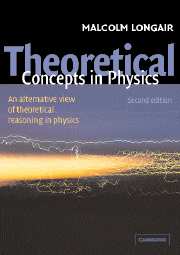Book contents
- Frontmatter
- Contents
- Preface and acknowledgements
- 1 Introduction
- Case Study I The origins of Newton's laws of motion and of gravity
- 2 From Ptolemy to Kepler – the Copernican revolution
- 3 Galileo and the nature of the physical sciences
- 4 Newton and the law of gravity
- Case Study II Maxwell's equations
- Case Study III Mechanics and dynamics – linear and non-linear
- Case Study IV Thermodynamics and statistical physics
- Case Study V The origins of the concept of quanta
- Case Study VI Special relativity
- Case Study VII General relativity and cosmology
- Index
4 - Newton and the law of gravity
Published online by Cambridge University Press: 05 June 2012
- Frontmatter
- Contents
- Preface and acknowledgements
- 1 Introduction
- Case Study I The origins of Newton's laws of motion and of gravity
- 2 From Ptolemy to Kepler – the Copernican revolution
- 3 Galileo and the nature of the physical sciences
- 4 Newton and the law of gravity
- Case Study II Maxwell's equations
- Case Study III Mechanics and dynamics – linear and non-linear
- Case Study IV Thermodynamics and statistical physics
- Case Study V The origins of the concept of quanta
- Case Study VI Special relativity
- Case Study VII General relativity and cosmology
- Index
Summary
Introduction
Richard Westphal's monumental biography Never at Rest was the product of a lifetime's study of Isaac Newton's life and work. In the preface, he writes:
The more I have studied him, the more Newton has receded from me. It has been my privilege at various times to know a number of brilliant men, men whom I acknowledge without hesitation to be my intellectual superiors. I have never, however, met one against whom I was unwilling to measure myself so that it seemed reasonable to say that I was half as able as the person in question, or a third or a fourth, but in every case a finite fraction. The end result of my study of Newton has served to convince me that with him there is no measure. He has become for me wholly other, one of the tiny handful of supreme geniuses who have shaped the categories of human intellect, a man not finally reducible to the criteria by which we comprehend our fellow beings.
In the next paragraph, he writes:
Had I known, when in youthful self-confidence I committed myself to the task, that I would end up in similar self-doubt, surely I would never have set out.
Newton's impact upon science is so all pervasive that it is worthwhile filling in some of the background to his character and extraordinary achievements. The chronology which follows is that adopted in the Introduction of the volume Let Newton Be.
- Type
- Chapter
- Information
- Theoretical Concepts in PhysicsAn Alternative View of Theoretical Reasoning in Physics, pp. 53 - 76Publisher: Cambridge University PressPrint publication year: 2003



